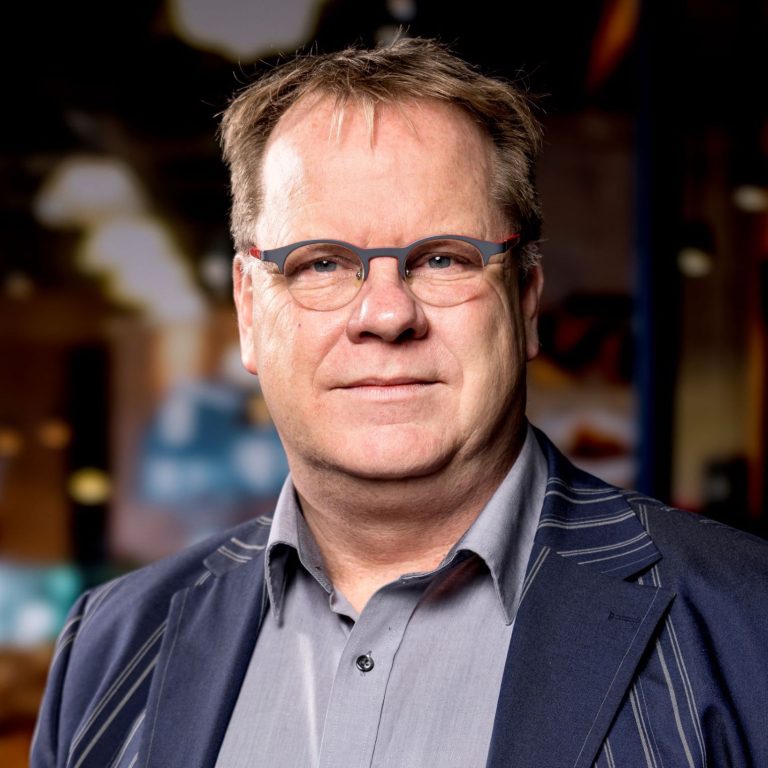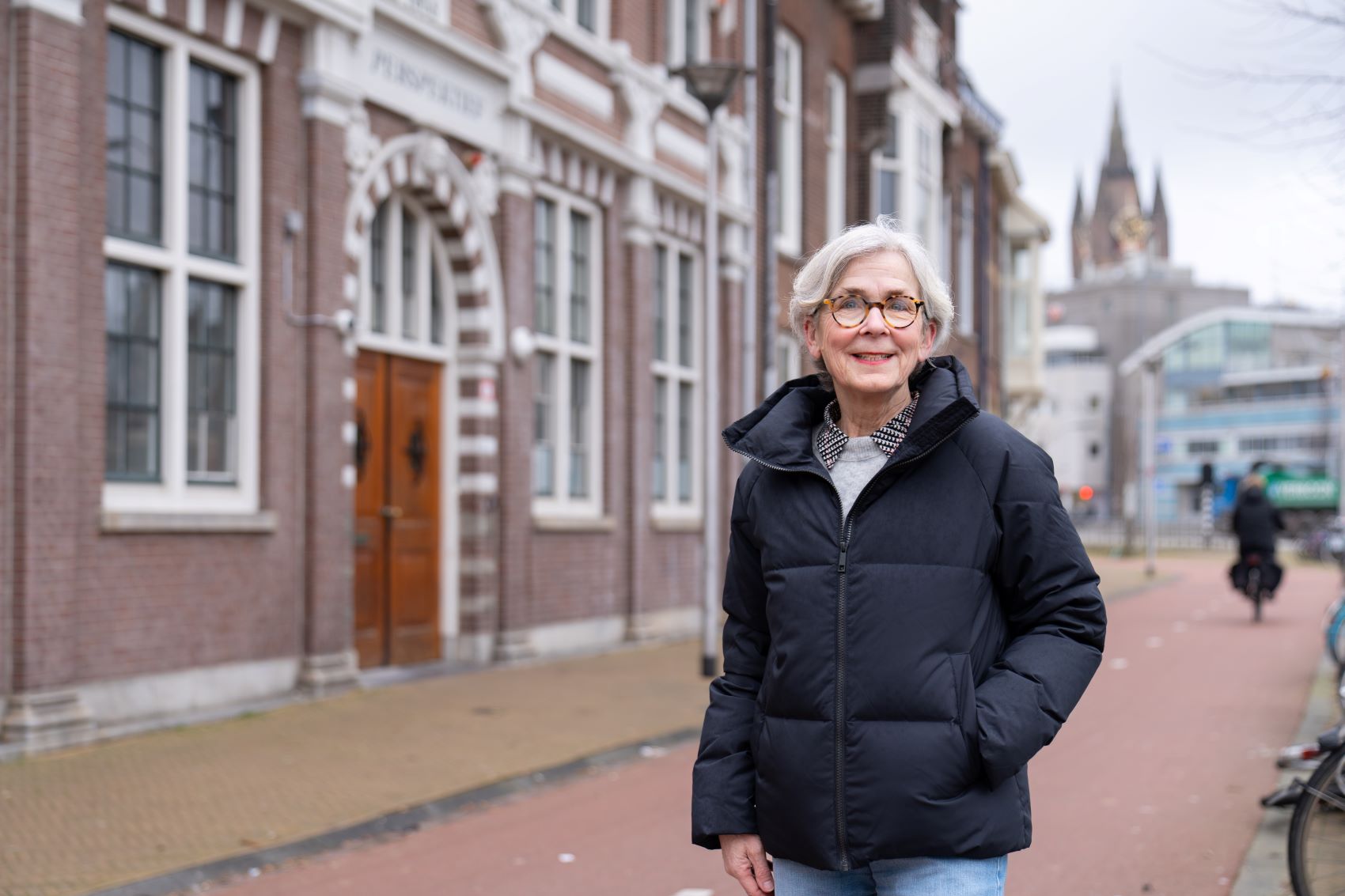Student accommodation and the growth of TU Delft are returning themes in the election manifestos of Delft’s political parties. A series of interviews with party candidates.
Schrederhof: “Unbridled growth is also a challenge for TU Delft.” (Photo: Alyssa van Heyst)
As the current Alderman for Housing, party candidate Karin Schrederhof is no stranger to Delft. Leon Hombergen, who is second on the list, is already the Party Chair at the Hoogheemraadschap van Delfland (Delfland water board) and is on the list for the Municipal Council elections for the first time. He went into politics because he wanted everyone to have the opportunities that he had. “Soon after I was born my father became unable to work. Thanks to the social services we could still make ends meet and I could even study at TU Delft.” Schrederhof and Hombergen wanted to be interviewed together.
You have ideas for all sorts of types of housing. What would you do about the shortage of student rooms?
“By asking the municipalities around Delft for help, as we did with Schiedam and Rijswijk,” says Schrederhof. Apart from that, we also want to look for locations for temporary housing for 10 to 15 years. As soon as these locations would be needed for something else, we will look for new temporary locations. You do not solve anything by doing this, but you do create some room to breathe.”
The land belongs to TU Delft, so they would need to cooperate. How will you convince TU Delft to build more than the current houses and possibly even temporary housing?
“It’s understandable that universities do not want to spend their education money on building houses,” says Schrederhof. “But you can think more creatively about how you use your land. This is already being done. We are talking to Duwo (the student housing corporation) and TU Delft about temporary student housing on TNW Zuid where the ground has always been reserved for companies. But TU Delft is starting to bend.”


Many of the election programmes centre around the growth of TU Delft. How do you envision the future of TU Delft?
“Apart from working for Rijkswaterstaat (Directorate-General for Public Works and Water Management), I also teach at TU Delft. Delft and TU Delft belong together,” says Hombergen. “And yes, a university does have some disadvantages for the city, but it mostly has advantages. The city is livelier and without TU Delft, Delft would just be another Schiedam or Gouda.”
Schrederhof adds that “The question is what we can cope with, but the Municipality and TU Delft will definitely come together on this. Unbridled growth is also a challenge for TU Delft. There is a reason that they send letters to international students warning them to only come to Delft if they have housing.”
Tell us one thing that you managed to do for students or young people last year.
“At the Hoogheemraadschap van Delfland, where I am Party Chair, I was involved in ensuring that TU Delft started working with us at operational level. Students can now do internships here and there are contests for theses.”
If you had a big pot of money, what would you spend it on?
Schrederhof would “make sure that there is more manpower in residential neighbourhoods in Delft so that every neighbourhood has a place where people can go. I’m not talking about community centres, but smaller contact points where residents could go to ask questions about the problems that they come up against.”
-
For this interview series, the editors of Delta approached all participating Delft political parties by email, sms, phone, Instagram, LinkedIn and Facebook. Despite repeated contact attempts, we did not succeed in scheduling interviews with Bij1Delft, Onafhankelijk Delft and Volt. Read the election programmes of all participating political parties in Delft via this link (in Dutch).
Do you have a question or comment about this article?
a.m.debruijn@tudelft.nl


Comments are closed.